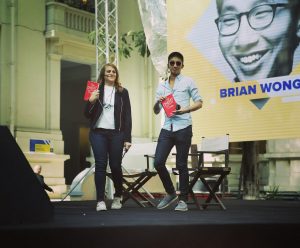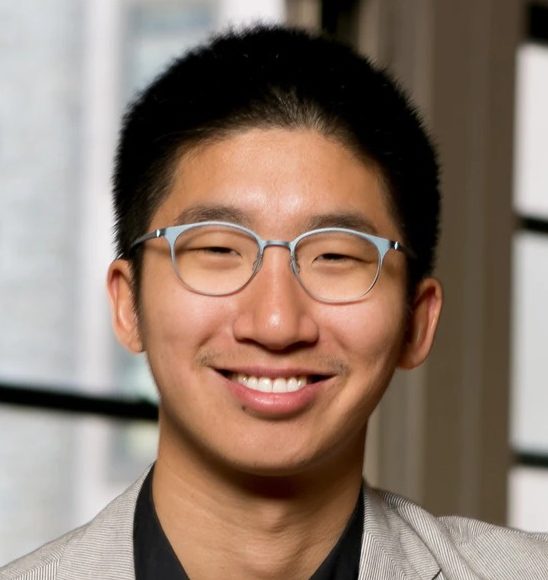
As we celebrate the 8th year anniversary of the release of Brian Wong’s influential book, The Cheat Code, Going Off Script to Get More, Go Faster, and Shortcut Your Way to Success, it’s an ideal time to introduce a series of new “Cheat Codes” to continue the legacy of the book. To begin, Brian Wong has introduced a new life hack that can enhance personal growth: becoming comfortable with discomfort. This new practice, shared by Wong in celebration of the anniversary (September 6, 2016), is a transformative approach to mindfulness, growth, and building resilience in our daily lives.
Success Cheat Code 72: The 30-Day Challenge: Building a Habit of Discomfort
Wong’s latest approach is simple yet powerful: force yourself to do one uncomfortable thing every day (separately, not all together). It doesn’t have to be monumental—it could be as small as taking a cold shower, striking up a conversation with a stranger, or waking up 30 minutes earlier than usual. The idea is to step out of your comfort zone consistently. After 30 days, you’ll find that what once seemed difficult or daunting becomes easier. In fact, you’ll start to welcome these moments of discomfort, as they become associated with progress and growth.
Research supports this notion. Many experts agree that forming a habit takes around 21 to 30 days, and this is especially true when it comes to embracing discomfort. Camille Styles, in her article on how to have a good day, notes the importance of small, intentional habits that push us toward better versions of ourselves. This daily practice builds mental resilience, a key factor in reducing stress and fostering greater well-being.
Discomfort as a Pathway to Mindfulness
Mindfulness, often associated with meditation and calm reflection, is deeply linked to this new practice. When we intentionally push ourselves into discomfort, we are forced to confront our immediate reactions—fear, resistance, anxiety—and learn to stay present with these emotions. Rather than fleeing from discomfort, we sit with it, breathe through it, and ultimately, grow from it.
This fresh perspective from Wong aligns with many thought leaders in the wellness space, who emphasize the importance of facing challenges with a mindful approach. By paying attention to the feelings that arise when we’re uncomfortable, we can better understand our own limitations and fears. This awareness is a powerful tool for personal growth.
In the words of Ryan Holiday, another advocate for mindfulness through adversity, “The obstacle is the way.” Holiday, like Wong, encourages us to view challenges as the path to our greatest strengths. He suggests that when we see discomfort as a friend rather than an enemy, we unlock potential that would otherwise remain dormant. This closely follows Wong’s mindfulness journey over the last few years where he has trained in traditional Zen Buddhism methods and classical meditation and presence based mindfulness.
A Variety of Challenges: Keep It Fresh
Wong’s new life hack doesn’t require repeating the same challenge each day. In fact, it’s best to mix it up. One day, you might tackle a physical discomfort like fasting or a tough workout, while the next, you could focus on emotional challenges like having a difficult conversation or practicing vulnerability. The variety keeps the process engaging and ensures that different aspects of your life are constantly evolving.
Incorporating diverse challenges also ensures that you’re not merely toughening yourself in one area, but becoming more well-rounded. A recent article in iNews explores how small daily habits can make life easier over time. These habits—whether it’s clearing out clutter, learning a new skill, or even limiting social media—are uncomfortable at first but lead to long-term benefits. Wong’s practice encourages you to explore discomfort in multiple dimensions, ensuring holistic personal growth.
The Wisdom of Others
This approach to growth isn’t something Wong claims to have invented, but rather a timeless principle shared by many successful individuals. In the business world, leaders like Tim Ferriss, author of The 4-Hour Workweek, emphasize the importance of “fear-setting,” a practice where you deliberately face what you’re most afraid of to reduce its power over you. Similarly, Brene Brown speaks about the vulnerability and discomfort that come with courage and leadership, noting that it’s through these moments that we truly connect with ourselves and others.
For those interested in pursuing a more mindful and resilient life, Wong’s new practice of daily discomfort is both an inspiring and practical tool. By engaging with it for 30 days, anyone can begin to see the benefits of becoming comfortable with the uncomfortable.
As we commemorate the 8th anniversary of the release of Brian Wong’s book, now is the perfect time to take on this transformative new challenge. Start today—commit to one uncomfortable action daily for the next 30 days. Whether it’s a small physical, emotional, or mental challenge, you’ll be surprised by how quickly discomfort turns into confidence. And once you’ve crossed that threshold, you’ll see that true growth begins at the edge of your comfort zone.
Additional Readings:
- https://behavioralscientist.org/get-comfortable-with-feeling-uncomfortable/
- https://www.entrepreneur.com/starting-a-business/how-to-get-comfortable-being-uncomfortable-as-an/471055
- https://timesofindia.indiatimes.com/blogs/discovering-life/power-of-cold-shower-to-get-comfortable-being-uncomfortable/
- https://www.verywellmind.com/what-to-do-when-you-have-no-motivation-4796954
- https://www.innovatorsmag.com/learn-how-to-harness-your-motivation-in-2024/
